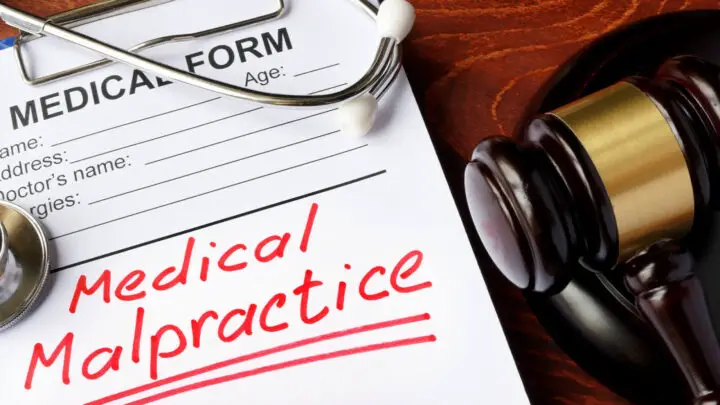When is Misdiagnosis Considered Medical Negligence?

Taking care of your health is the most important thing in your life. Without it, there is not much else to look forward to or plan for. It is no use because one can never find peace and pleasure in life and strive for greatness if there is an illness or a disease to hold them back. Because of this it is prevalent for humans to take care of their health so that they can build a life and a secure future for themselves and their families. However, things do not always go according to plan and oftentimes an illness, a disease, or an injury can put a long stop to all of the plans you might have had.
In these scenarios the only thing left to do is contact medical professionals whose job it is to help others with health related problems. Doctors, nurses, caregivers, surgeons, physicians… whatever the health issue you have there is a certified expert somewhere that can help. All it takes is to find the right one and on time, or at least visit a medical facility in an emergency so that you receive first aid and get temporary help. Still, there is no guarantee that they will be able to help, at least not immediately. In some cases there are long-lasting consequences and chronic ailments, while the worst of the worst deal with experts not doing their job properly and making things worse.
When Those Who Should Help Fail

There are many different health issues that if not treated right can make things much worse. Many bacterial diseases can be fatal for example. Ignoring the initial symptoms or not reacting on time can lead to dire consequences. For example, Pneumonia causes inflammation in the lungs, specifically in the air sacs, which fill up with infectious fluid and cause the airflow to be restricted severely. Pneumonia is highly fatal in neonates. These are all known facts so there is no excuse if a medical expert fails to give a proper diagnosis or treats the illness poorly.
Medical negligence or misdiagnosis of a disease can often cause fatalities. When a doctor diagnoses incorrectly, it may lead to delayed or incorrect treatment, and in some cases, one may not receive any treatment at all. As a result, the patient’s condition may deteriorate, other parts of the body may suffer, and sometimes it can lead to a fatal outcome. In this case, provided that the patient recovers, all that can do is take legal action. It can also fall upon the family to react if their loved one is unable to.
Having a lawyer who can help you understand the laws may be essential in case of medical malpractice. Law firms who specialize in medical negligence can help and provide legal assistance. Visit their page to know more details in case you need it right now, or if you want to arm yourself with information in case this ever happens to you or someone you care about.
Some diseases may share many common signs and symptoms with other conditions. Some common symptoms include fever, chills, fatigue, dehydration, etc. Most bacterial infections are generally easily curable, but timely treatment is essential. Delay in treatment can be extremely dangerous. Hence misdiagnosis can change one’s fate. If the doctor treating you fails to realize the extent of the situation and gives a poor diagnosis that leads to further issues, you have every right to contact your lawyer and seek justice.
When is Misdiagnosis Considered Medical Negligence?

A problem like a bacterial infection can be dangerous in its later stages. When doctors rush through patients, symptoms are often overlooked, missed, or misdiagnosed. This serious issue is considered medical negligence. It is essential not to miss the signs in the early stage of the disease. Things are largely the same with any other type of health risk, from cardiovascular problems and fractures to simple sprains and inflammations.
A misdiagnosis can not just alter one’s health but may result in death. Hence it is essential to have the right doctor. In addition, it can also be caused by the failure to sanitize the rooms where patients are staying or by sharing unsterilized instruments with others. So apart from the medical staff and their skill or knowledge failing a patient, it can be the whole facility and the state it is in that is to blame. Of course, legal action is then taken against those responsible and those in charge.
The attorney’s job is to prove the claim is valid and defend the hospital or doctor accused of malpractice or incompetence. Most cases do not involve intentional harm, so the lawyer must pinpoint the specific negligent behaviors. It is frequently tricky if everything appears in order, all protocols have been followed, and the doctor has sought a second opinion because the symptoms are ambiguous. Carefully prepared cases and evidence are crucial in winning such cases when there is ambiguity and where the hospital is trying to negate the blame.
Some examples of diseases that are often misdiagnosed instead of Pneumonia
Pneumonia shares many common symptoms with other respiratory diseases like COPD, asthma, pulmonary edema, etc. Pneumonia is often misdiagnosed with other conditions like Hypersensitivity pneumonitis, Eosinophilic Pneumonia. All these can further aggravate the symptoms, which may lead to a misdiagnosis. Chances of finding a medical expert who can tell you that you either do or do not have an illness that is similar to other, less or more serious illnesses, are not as high as they need to be.
Legal Defense of Misdiagnosis in Medical Negligence?

It is tough to navigate through these situations of medical negligence as it is essential to understand medical terms. It may be challenging to understand such complications during emotional times that one might be facing during such times. Having a knowledgeable legal defense specializing in medical cases is crucial to help you understand the law and give advice.
It is advisable to retain legal counsel once there is sufficient evidence to file a lawsuit. The legal expert will look at the situation and, if possible, negotiate with the insurance provider. Meetings with the insurance provider involve discussing the medical facts that would be addressed in court.

